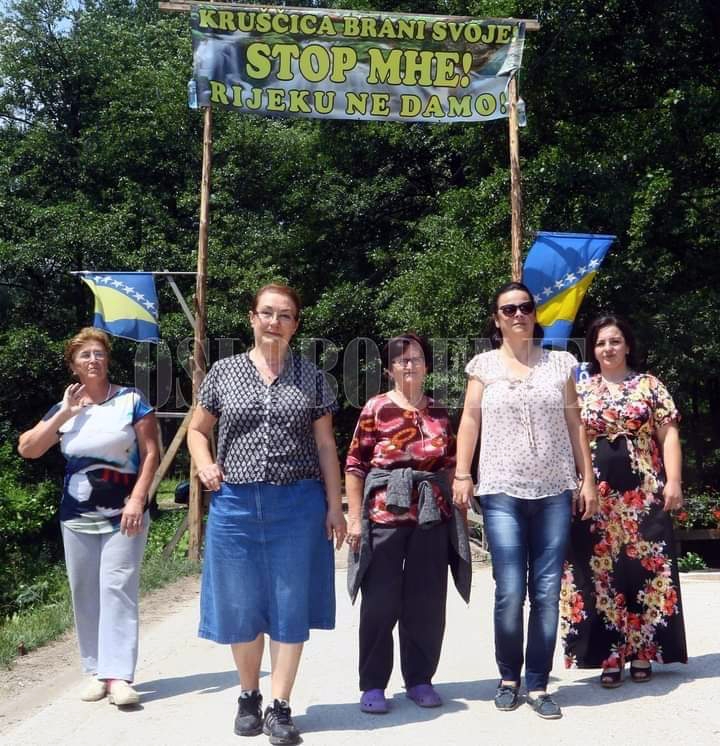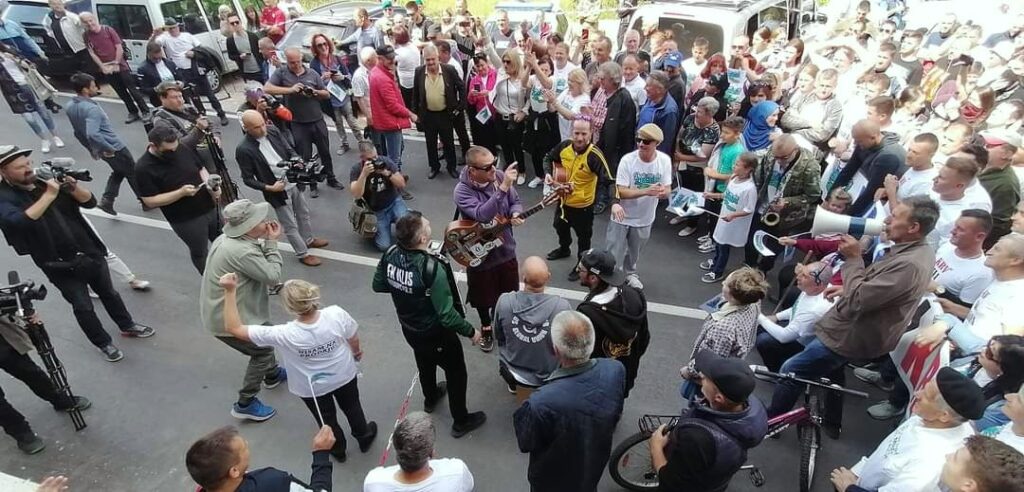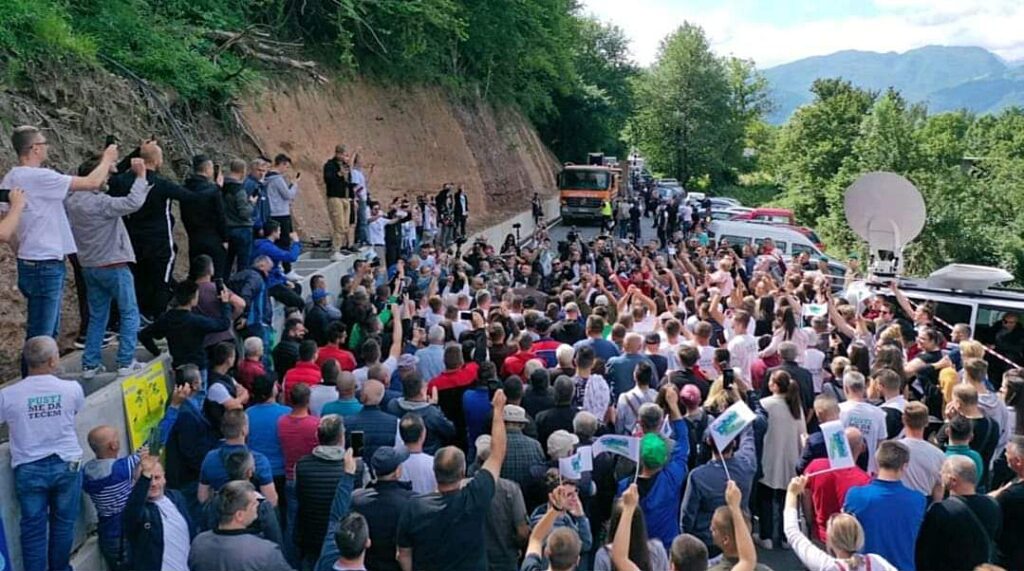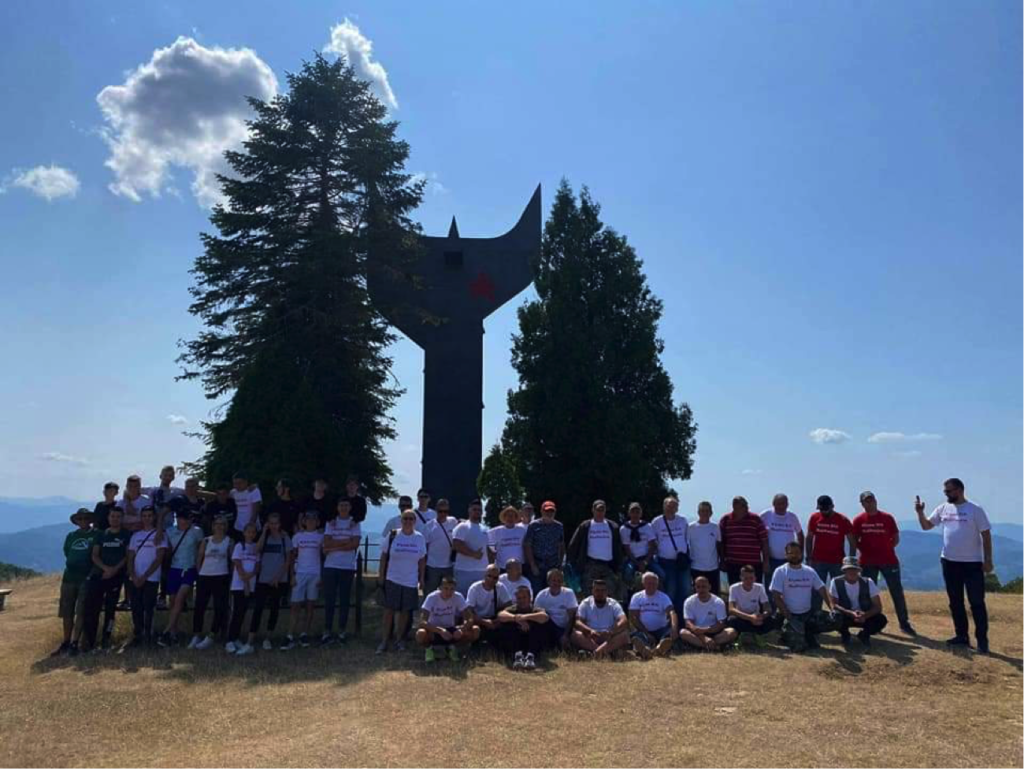Bosnia and Herzegovina (BiH) is a state with only 3,5 million citizens and with one of the most complex political systems in the world. The country’s governance is unwieldy and complex, having various entities and institutions managing the territory in an intertwined way. Since the end of the war, political allegiance has been usually based on ethnic identity, and cultural divisions are still enshrined in the institutional set up. This political separation shapes the sense of national community in Bosnia and Herzegovina, making it challenging for civilians to converge socially or politically for national causes. In this country, political activation is far more rooted in local struggles rather than broad, nation-wide activity.
Bosnia and Herzegovina is home to numerous lakes, water sprouts and spings, and the sixth country in Europe with the biggest amount of drinkable water per capita. When fusing a scattered state with systemic capitalism and corruption, one can already sense the downside of the bewildering wonders of BiH: the country’s rich natural resources are set as ideal candidates for ecological abuse and extraction. In fact, it was not long after the war of 92-95 that the privatisation and exploitation of natural resources led off. Back then, people weren’t aware that some individuals were getting richer at the expense of public, shared natural resources. However, over the course of years, civilians and activists started to notice that the same rivers they admired, where they used to swim and fish, were shape shifting and slowly disappearing.
Private investments aligned with corrupted political interests resulted in the construction of Small Hydro Power Plants (SHPP) in the rivers as well as in the exploitation of other natural resources in the forms of gravel extraction, deforestation and illegal mining. Out of necessity more than desire, the alarming situation ignited rapid mobilisation and people united in various formal and informal movements across the country to stand up for the protection of their natural resources. The ones in the forefront of these fights were local activist groups who gave voice and body to the struggles, resulting in an eco-activist awakening which would reach its peak in 2018.
As a symbol of courage, the brave women of Krušćica defended the river with their bodies for over 500 days and nights. Their self-organisation and the bravery they emanated encouraged all activists around the country to pursue their ground fights. Their message was clear and loud: SHPP will not be built on the river Krušćica. The protests and negotiations lasted for over 4 years. Their persistence led the excavators to leave the site, the government to withdraw from its spatial plans of constructing other small hydropower plants, and to the cessation of all concession agreements with international companies.

Similarly to the women of Krušćica, other protests in the country kept imbuing a sense of resistance in BiH, and in this way replenishing people’s imagination of a different future for the country’s natural resources. The protests around the river Neretvica called “Let me flow” were highly influenced by this groundbreaking activism.

Safet Sarajlić, one of the main protagonists of the “Let me flow” movement struck to the public’s eyes with his far-reaching determination: despite having both legs amputated, Safet was the first one to stand in front of trucks and excavators when the government and private sector tried to build fifteen mini hydropower plants along the river. The struggle has been ongoing for more than two years, but the activists’ efforts have led to a pending withdrawal from some of the water permits where two SHPPs were projected. The unresolved fight created precedents for more mobilisation, and local fights began to see that networked action was necessary for their voices to be heard.

It was in 2018 that the small, adapted initiatives and protests gave rise to a critical body in the country in defence of BiH’s rivers and against state corruption. The eco-movement “Rivers of Bosnia and Herzegovina – Be a change” is the result of the combination of local activist efforts, uniting all voices under the same slogan with the help of digital activist tools. Launched in 2020, the movement became a major socio-ecological phenomena in the country, counting now with 55780 members. “Be a change” is not funded by anyone, nor is its power concentrated in the hands of a few. Citizens see it as a light at the end of the tunnel, serving as a platform for small local efforts to be heard and a chance to exchange ways to combat ground struggles.
Its prominence as a national network shows how values and ideas can bypass the challenges of socio-cultural fraction lived in this country, sharing visions beyond municipalities or Cantons. In BiH, the national unifying ideology was ecology and bold environmental justice action.

The movement encourages activists to continue building the change they wish to see around them, and helps shape a supporting structure for dealing with legal clashes or physical obstructions on the ground. “Be a change” has prototyped hunting cameras to set up on threatened locations, and actively works on increasing pressure on institutions to democratise decision-making processes. Over the past years, the movement has developed a multitude of petitions, organised protests and activities such as fish stocking and afforestation, where in one year, 70,000 fish were released into the rivers and 70,000 seedlings were planted.
Their actions have had regenerative impacts on the territory and their advocacy reached beyond municipal borders. The movement’s everyday practices include sharing valuable resources on how to spark local engagement as well as raising awareness nationally about climate justice. Propelled by the power of collective action, activists of “Be a Change” hope and aspire for the movement to keep acting as a national resource for defending their public natural goods. But as the menaces persist, there’s only one way to keep imbuing the “ecology as an ideology” stance: strong networked organisation anchored on invincible local action.



